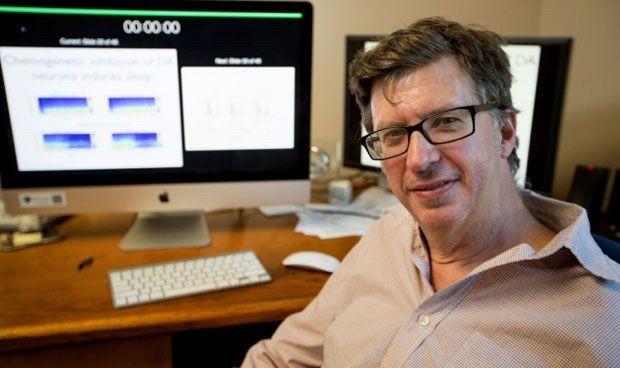
搜索网站、位置和人员

新闻与活动 活动信息
生命科学名师论坛 | Luis de Lecea: Neuromodulation of arousal/sleep states
时间
2024年9月9日(周一)
10:15 - 11:45
地点
云栖校区5号楼一楼报告厅
主持
西湖大学生命科学学院特聘研究员 边文杰
受众
全体师生
分类
学术与研究
生命科学名师论坛 | Luis de Lecea: Neuromodulation of arousal/sleep states
时间:9月9日星期一10:15-11:45
Time:10:15-11:45 AM, Monday, September 9,2024
主持人:西湖大学生命科学学院特聘研究员 边文杰
Host:Dr. Wenjie Bian, Principal Investigator, School of Life Sciences
地点:云栖校区5号楼一楼报告厅
Venue:Lecture Hall, 1F, Building 5, Yunqi Campus
主讲嘉宾/Speaker:

Dr. Luis de Lecea, Professor, Dept. of Psychiatry and Behavioral Sciences, Stanford University
Prof. Luis de Lecea is Director of Major Research Laboratory and Incubator and Professor of Psychiatry and Behavioral Sciences at the Stanford University. He obtained his PhD from the University of Barcelona and conducted postdoctoral research at the Scripps Research Institute. He was promoted to Assistant and Associate Professor at Scripps and moved to Stanford in 2006. Dr. de Lecea discovered several neuropeptides with key functions in cortical excitability and sleep regulation, including the cortistatin and hypocretins, which has led to the development of multiple drugs for the treatment of sleep disorders. His group was among the first to apply optogenetic methods in vivo to alter animal behavior, and more recently, has also implemented non-invasive ultrasound for modulation of arousal circuits. Dr. de Lecea is one of the most highly cited basic sleep researchers and has received numerous awards, including Brain Research Foundation Distinguished Scientist Award, American College of Neuropsychopharmacology Innovation Award, and the Sleep Research Society Outstanding Research Achievement Award. He has served on multiple national and international committees and on the National Institute of Drug Abuse Board of Scientific Counselors.
讲座摘要/Abstract:
I will show how the use of optogenetics and circuit mapping methods revealed critical roles of neuromodulators on sleep/wake transitions. I will present a new mechanism underlying sleep fragmentation whereby a potassium channel maintains excitability of hypothalamic Hcrt neurons during aging. These data point to multiple circuits modulating sleep integrity across lifespan and potential pharmacological targets to treat sleep fragmentation in aged patients.
Our laboratory is developing ultrasound as a new approach to sleep intervention in mouse models. We have developed a new method to screen and optimize parameter conditions of fUS-mediated cell type specific modulation of neuronal activity in arousal circuits, with significant effects on sleep architecture. The results from these experiments pave the way towards non-invasive modulation of sleep/wake states in humans.
联系人/Contact:
生命科学学院
于文越 yuwenyue@westlake.edu.cn

















